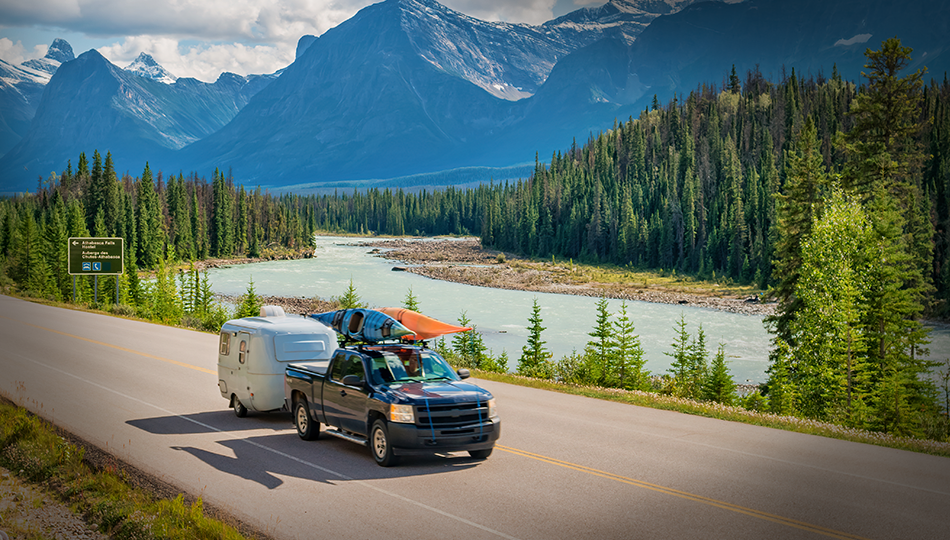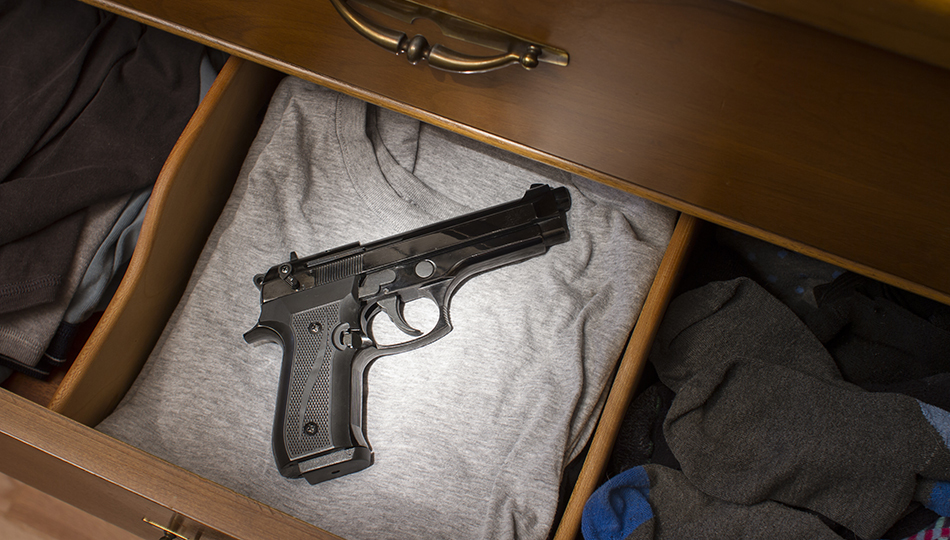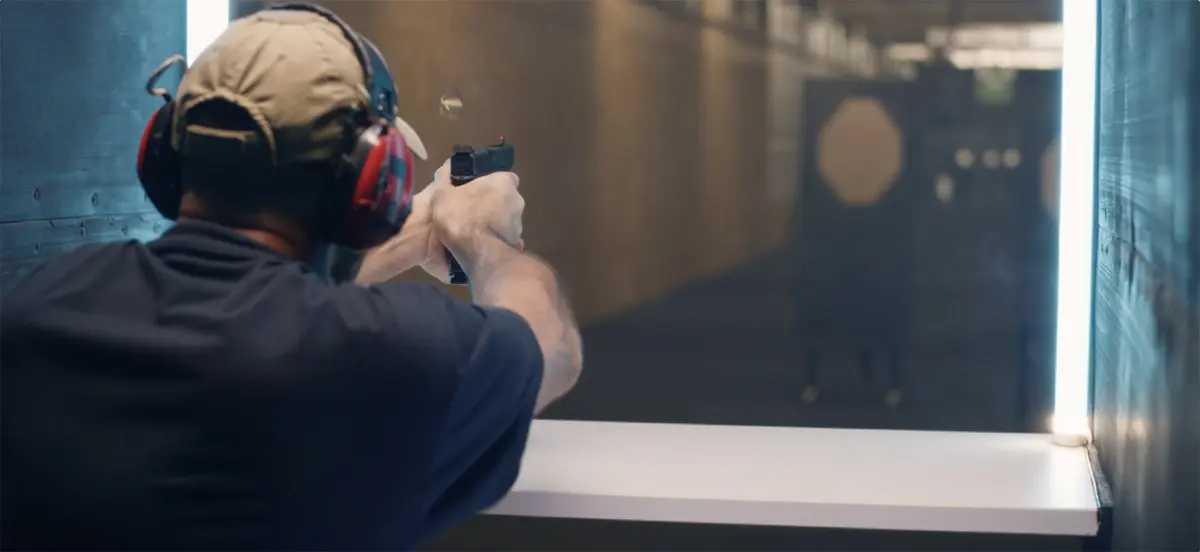
Whether you have a concealed carry license or not, if you’ll be traveling cross-country with your firearms while on vacation this year, you’ll be happy to know that the federal Firearm Owners’ Protection Act, or FOPA, allows you to legally transport your firearms in your vehicle while you drive, so long as you comply with a short list of requirements found in what is known as the “Safe Passage” provision, or 18 U.S.C. § 926A.
What is Reciprocity?
Reciprocity is when one state enters into an agreement with another state or chooses to honor another state’s laws or set of laws. As it pertains to handgun license and permit holders, there are several states which have reciprocity agreements that recognize out-of-state carry licenses and permits.
In general, if the state you are traveling to shares reciprocity with the state that issued your license or permit, you can carry there as if it were a license or permit issued by the destination state. States are not required to have reciprocity with one another, and there is no requirement to recognize another state’s carry license. Many states issue their own licenses but refuse to acknowledge licenses and permits from other states. Conversely, some states choose to recognize all other states’ carry licenses.
A Word of Caution
While you may be permitted to carry in the reciprocating state, the rules you are accustomed to in your issuing state may not apply. In some instances, the laws may be completely different. Signage is particularly troubling since it varies widely by jurisdiction, so be highly aware when entering any building while carrying. This is especially true when entering an area that serves a specific purpose, such as government buildings, schools, establishments that serve alcohol, or places that cater to children and families.
Additionally, the way you can carry may change depending on the state. For example, Texas license holders may openly carry their handgun in a belt or shoulder holster, but may not do so in Florida, which prohibits open carry. Some states also restrict the type of firearms you can carry or magazine capacity. Oklahoma does not allow the carry of handguns with a caliber larger than .45, and Colorado does not allow magazines with a capacity greater than 15 rounds.
What Happens if a State Doesn’t Recognize a Person’s License or Permit to Carry?
If you find yourself in a state that does not recognize your home state’s license or permit to carry a handgun, use extreme caution. In fact, there may even be restrictions on carrying in your vehicle. So, until you learn the law, keep your firearm in your vehicle unloaded, locked, and inaccessible. But the best practice is to check ahead of time before your journey. U.S. LawShield® members can call the non-emergency helpline to make sure they understand how to comply with the firearm laws of the state to which they’re traveling.
There Are Three Conditions You Must Meet When Crossing State Lines With Your Firearms:
- The first condition is that any firearms or guns you are transporting must be unloaded and locked in the trunk of the vehicle or in another container that is out of reach or not immediately accessible. Any ammunition must also be locked in the trunk or another container. This does not include the glove box or center console.
- Second, your journey must begin and end in states where your possession of firearms is legal. So, for example, if you begin your journey in your home state of Texas and are looking to drive to Grandma’s house in Kansas, where permitless concealed carry is legal, you will be protected as long as you meet the other two conditions. However, if you begin your journey in Texas and are driving to New Jersey for vacation, where a state-issued license is required to even own a firearm, you will not be protected under the Safe Passage provision.
- Lastly, you must be “traveling.” This applies especially while going through a state that is not firearm-friendly. Unfortunately, the term “traveling” is not defined in federal law. Courts have interpreted it narrowly to indicate that a person must not stop in one place for “too long.” Unfortunately, how long is “too long” is not entirely clear. In an actual case decided in 2013, a man was convicted for illegal possession of his shotguns and rifles secured in zippered cases after he stopped for a brief nap in New Jersey while moving from Maine to Texas.
But what is the general rule if a state recognizes your state’s license or permit to carry?
If the issuing state for your license or permit shares reciprocity with another state, you can carry in the reciprocating state under that state’s laws.
Safe Passage Protection May Not Always Prevent an Arrest!
A word of warning: Even if you qualify for Safe Passage protection, some states—such as New York and New Jersey—treat Safe Passage protection as a mere affirmative defense instead of a protection from arrest and prosecution. This means police in these states may still arrest you if you are pulled over with firearms in your vehicle, despite meeting all of the conditions of the federal statute. To beat potential charges of illegal possession of firearms and/or assault weapons, you would then need to assert your Safe Passage protection as a defense in court. This could involve substantial court costs and inconvenience, not to mention putting a halt to your vacation plans.
Your Protection Starts Here!
The information provided in this presentation is intended to provide general information to individuals and is not legal advice. The information included in this publication may not be quoted or referred to in any other publication without the prior written consent of U.S. LawShield, to be given or withheld at our discretion. The information is not a substitute for, and does not replace the advice or representation of a licensed attorney. We strive to ensure the information included in this publication is accurate and current, however, no claim is made to the accuracy of the information and we are not responsible for any consequences that may result from the use of information in this publication. The use of this publication does not create an attorney-client relationship between U.S. LawShield, any independent program attorney, and any individual.





This is a question comment.
There is no information in regard to long gun vs handgun. Most all of the articles that I come across reference handguns specifically,that or there is no mention of long guns. Is that because there is no difference in the eyes of certain state laws?
I know that handgun restrictions are different from state to state. I am looking to transport 2 long guns. I’m moving from a firearm friendly state to a firearm unfriendly state. Neither of my long guns are illegal to own in any state. In other words they aren’t Black Rifles and neither of them have the features that make them an (assault rifle or SBR) no magazines over 10 rounds,no pistol grip,no threaded barrel,magazines locked in a separate container,ammo locked in a separate container etc. If all items are locked and stored in the cargo area of my vehicle am I legal?
This is a great question. If you’re a member, please call our non-emergency line to get an answer from an independent program attorney at 877-448-6839.
So constitutional law is not law in NY and New Jersey, so the 2nd Amendment does not apply?
My family will be driving from Texas to California for our sons graduation from Marine Boot Camp. My husband and I both have our LTC in Texas. We would like to take a handgun with us on our trip for personal safety. I have read that the gun and ammunition have to be stored safely and in a secured locked box. We will be staying the night in Arizona during our drive. I am concerned about getting into trouble if we get pulled over or have an accident (hopefully not) especially in states that do not recognize our LTC from Texas. If possible please give any advice or information on these concerns.
Thanks
I’m going to travel back to California from Arizona, can I take my firearm in my car unloaded and in separate storage places in my car?
I am a widow alone.
I would like to take my firearm as protection when traveling to visit my parents home in another state.
How will I be protected if the gun is locked up in the trunk? I guarantee the criminals who will want to carjack and murder me don’t have them locked in the trunk.
Misleading.
I am taking a road trip soon from AZ to PA. A combination of a wallet full of non-resident licenses, Constitutional carry and CCW reciprocity, I will be carrying a handgun the entire time. Yes, I had to look at several maps and plan the trip around carrying, but it will be possible and perfectly legal the entire way.
The firearm will never be locked in any container the entire trip, it will be on my hip the entire way.
Perfectly legal.
I have often wondered if I can legally transport my firearm between states. Generally, it is illegal to transport a firearm across state lines without first obtaining permission from the relevant state authorities. In some cases, you may be able to transport a firearm between states with a permit or license, but you should always check the specific laws in each state before doing so. Additionally, it’s important to note that federal laws apply to the transporting of firearms across state lines, and these laws may be stricter than the laws of any individual state.
I am temporarily working in VT. My residence is in NC. Can I fly into a CT airport with my handgun satisfying all the flight rules and then carry it to my destination in Constitutional state of VT. Thank
How are you supposed to protect yourself if you get carjacked and your gun is in the trunk locked up? This is just plan wrong, the criminals can have a gun with them, but law abiding citizen can’t.
They made it VERY confusing, VERY difficult, and VERY risky, on purpose. Since the constitution doesn’t allow them to take guns away, they make things so annoying and risky for the regular citizen, that you begin to wonder if it’s even worth it, and thaaaaat’s exactly what certain politicians want 😏 oooooow yeah